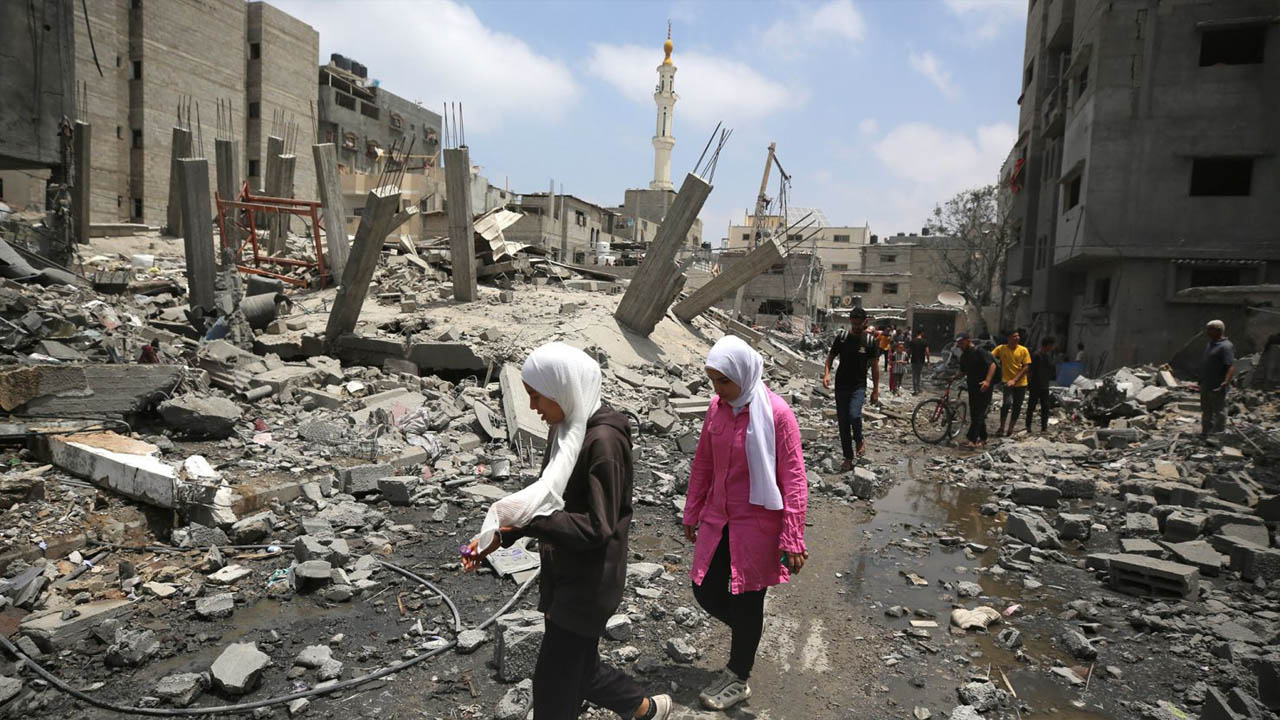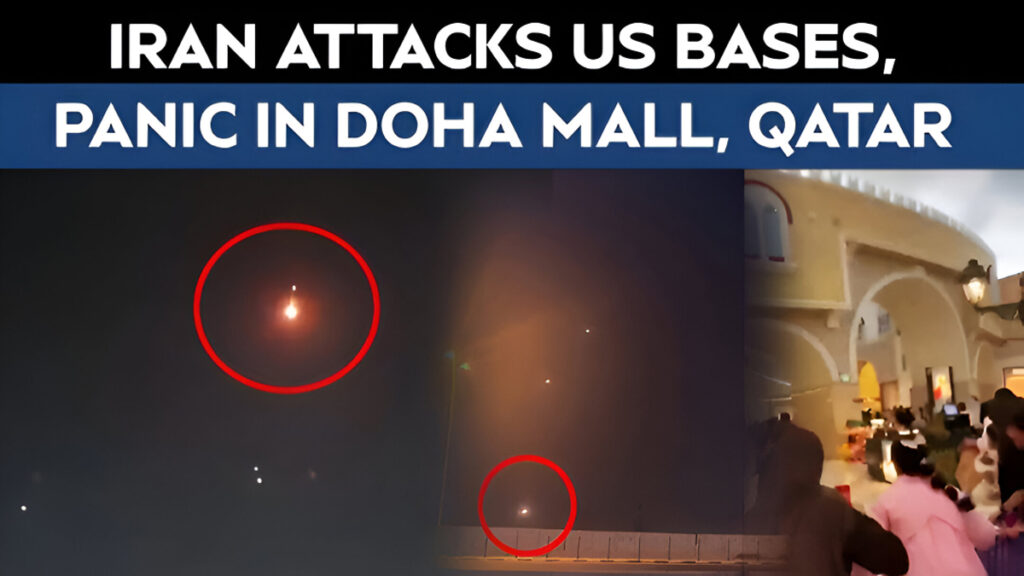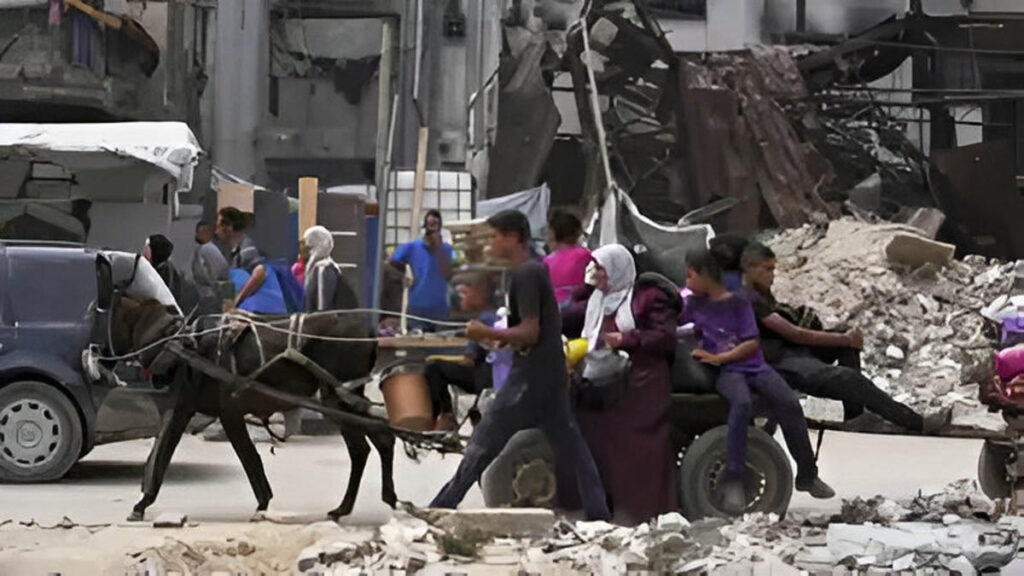Now Reading: Qatar Presents Final Gaza Truce Deal; Hamas May Release 33 Israeli Hostages In Phase 1
-
01
Qatar Presents Final Gaza Truce Deal; Hamas May Release 33 Israeli Hostages In Phase 1
Qatar Presents Final Gaza Truce Deal; Hamas May Release 33 Israeli Hostages In Phase 1

Doha, Qatar – In a significant development that could potentially bring an end to the prolonged conflict in Gaza, Qatar has presented a final draft of a truce deal to both Israel and Hamas. The proposed agreement includes a phased release of Israeli hostages held by Hamas, with an initial group of 33 individuals expected to be freed in the first phase.
A Potential Breakthrough
The announcement comes after months of intense diplomatic efforts, primarily led by Qatar, to mediate a ceasefire and facilitate the release of hostages. The recent talks in Doha, which included high-ranking officials from Israel, Hamas, Qatar, and Egypt, as well as envoys from both the outgoing Biden administration and the incoming Trump administration, are believed to have yielded a crucial breakthrough.
Key Elements of the Proposed Deal
While the full details of the agreement remain confidential, several key elements have been revealed by sources close to the negotiations:
- Phased Hostage Release: The cornerstone of the deal is a phased release of Israeli hostages held by Hamas. In the first phase, 33 hostages are expected to be freed, potentially including women, children, and elderly individuals. Subsequent phases would see the release of remaining hostages in exchange for Palestinian prisoners held by Israel.
- Ceasefire: The agreement proposes a ceasefire to halt the ongoing hostilities between Israel and Hamas. The duration and terms of the ceasefire are still under discussion, but it is expected to provide a window for further negotiations on a long-term solution to the conflict.
- Withdrawal of Israeli Forces: The deal reportedly includes a phased withdrawal of Israeli forces from Gaza. The withdrawal would be gradual, with Israeli forces initially redeploying to the border areas and eventually completing a full withdrawal.
- Humanitarian Aid and Reconstruction: The agreement also addresses the dire humanitarian situation in Gaza. It includes provisions for increased humanitarian aid to be delivered to the Strip and for the commencement of reconstruction efforts to rebuild damaged infrastructure.
- Security Arrangements: To ensure the long-term stability of the region, the deal proposes new security arrangements along the Gaza border. These arrangements aim to prevent future escalations of violence and provide security for both Israelis and Palestinians.
Challenges and Uncertainties
Despite the significant progress achieved, several challenges and uncertainties remain. Both Israel and Hamas have yet to officially accept the final draft of the agreement. Hardliners on both sides could potentially derail the deal, and disagreements over specific details could still emerge.
The timing of the deal, with the transition of power in the United States just days away, adds another layer of complexity. While both the Biden and Trump administrations have expressed support for the mediation efforts, it remains to be seen how the new administration will approach the Israeli-Palestinian conflict.
A Glimmer of Hope
Despite the challenges, the proposed truce deal offers a glimmer of hope for a region that has been plagued by conflict for far too long. If successfully implemented, it could pave the way for a more sustainable peace and a better future for both Israelis and Palestinians.
International Reaction
The announcement of the proposed deal has been met with cautious optimism from the international community. The United Nations, the European Union, and several world powers have welcomed the progress and urged both sides to seize this opportunity for peace.
The Role of Qatar
Qatar has played a pivotal role in mediating this potential breakthrough. The Gulf state has cultivated close ties with both Israel and Hamas, which has enabled it to serve as a trusted intermediary. Qatar’s commitment to diplomacy and its persistent efforts to bridge the gap between the two sides have been crucial in reaching this stage.
Looking Ahead
The coming days will be critical in determining the fate of the proposed truce deal. If both Israel and Hamas agree to the terms, it could mark a significant turning point in the conflict. However, if either side rejects the deal, the region could be plunged back into further violence and instability.
The world is watching closely, hoping that this opportunity for peace will not be missed. The people of Gaza, who have endured years of hardship and suffering, deserve a chance for a better future. It is time for both sides to choose the path of peace and reconciliation.
Additional Considerations:
- Impact on the Region: A successful implementation of the truce deal could have a significant impact on the wider Middle East region. It could potentially de-escalate tensions and create a more conducive environment for regional cooperation.
- Long-Term Implications: The deal could also have long-term implications for the Israeli-Palestinian conflict. It could serve as a foundation for future negotiations on a final status agreement that addresses the core issues of the conflict, such as borders, refugees, and Jerusalem.
- The Importance of International Support: Continued international support will be crucial for the success of the truce deal and any future peace efforts. The international community must remain engaged and provide the necessary political and financial support to ensure a lasting peace.
The proposed Gaza truce deal represents a significant development in a conflict that has lasted for far too long. While challenges remain, the potential for a breakthrough offers a glimmer of hope for a region desperately in need of peace. The coming days will be crucial in determining whether this opportunity will be seized, paving the way for a more stable and prosperous future for both Israelis and Palestinians.










